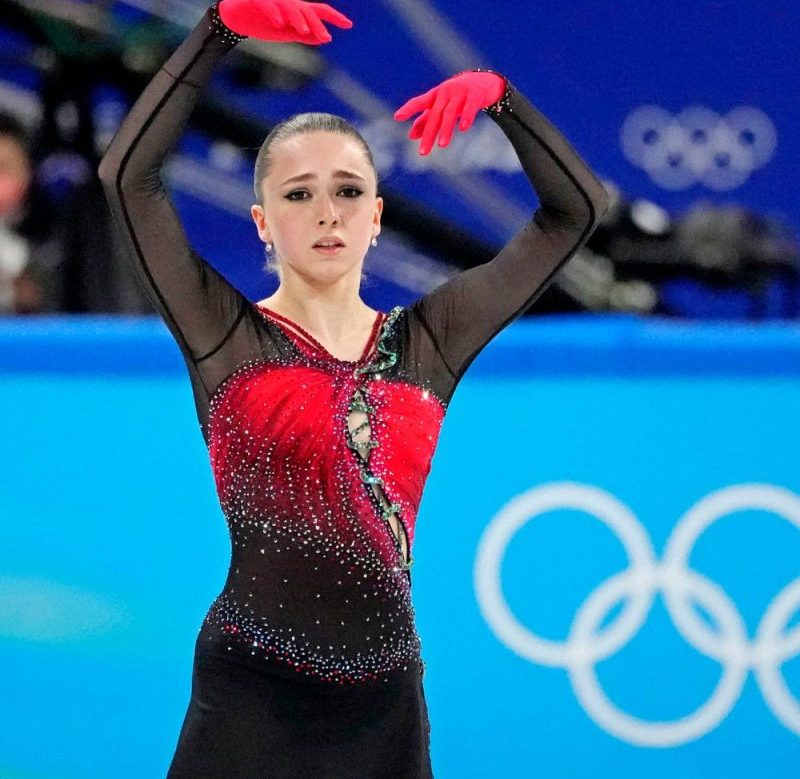
Details from skater Kamila Valieva’s doping hearings to stay secret
More than eight months after Kamila Valieva’s positive drug test rocked the Beijing Olympics, the Russian Anti-Doping Agency said Friday it will not divulge any information about her hearings, the decision or any other details about her case, prompting U.S. Anti-Doping Agency CEO Travis Tygart to blast the process as a “mockery” and call for immediate action from the International Olympic Committee and other organizations.
“The World Anti-Doping Agency, the International Skating Union and the IOC should immediately announce an appeal of any decision and hold an open process, as the rules provide, so that there is confidence in the final outcome,” Tygart texted USA TODAY Sports Friday morning.
“Short of this, it’s impossible for athletes or the public to believe what happened at the 2022 Beijing Games was real and not just another fraudulent win by the Russians like so many before, as the evidence has clearly shown.”
The results of the figure skating team competition at the Olympics in February were thrown into disarray when Valieva, the then-15-year-old star of the Russian team, was found to have tested positive for a banned substance the previous December, forcing the unprecedented cancellation of the event’s medal ceremony.
Russia won the gold medal, the United States won the silver medal and Japan won the bronze. Due to the excruciatingly slow pace with which Russia has supposedly been investigating the doping case against Valieva, the athletes still have not received their medals, and experts have predicted it could be many more months, and even another year or more, before they do.
There also could be a re-ordering of the medals if Valieva were to be disqualified, with the United States moving up to take the gold, followed by Japan and Canada, the fourth-place finishers in the competition.
In a statement emailed to USA TODAY Sports, RUSADA said it was keeping all details of the Valieva hearing process secret because she is a “protected person,” or minor.
But for a case that is so renowned worldwide, and one that cuts to the very heart of the integrity of the popular and controversial sport of figure skating, Tygart said much more is at stake.
“If she is exonerated, then there is nothing to hide, so make it public,” he texted. “Certainly, keeping the decision and facts secret makes a mockery of the whole process and there is no wonder athletes and the public do not trust the global WADA anti-doping system.”
Emails to spokespersons at WADA, the IOC and the ISU were not immediately answered early Friday afternoon.
Last month, RUSADA did publicize the completion of its investigation of Valieva without revealing its results, saying the next step in the case would be hearings. That development seemed to be a clear indication that evidence showed Valieva was found to have committed a doping violation, Tygart told USA TODAY Sports at the time.
“Given it appears that RUSADA’s investigation is over and the case is now headed to court, they must have found sufficient evidence of a violation or otherwise the case would be closed and WADA would be notified of its right to appeal,” Tygart said in a text message.
Tygart is not the only U.S. international sports official who has spoken out about the stunningly slow process and its detrimental impact on the athletes who still have not received their medals.
“It continues to be an outrageous situation,” U.S. Olympic and Paralympic Committee CEO Sarah Hirshland said in a teleconference interview in September. “We saw yesterday … RUSADA announced that there would be disciplinary hearings. That is all we know. I don’t have any details.
“If I tried to be optimistic, I would propose that maybe that’s the next step in the process after the closing of the investigation that now there will be hearings; however, we don’t have any time frame around that and so I don’t know how to set expectations,” Hirshland continued. “There can be hearings and then of course there can be appeals and so I fear that this is going to linger for quite some time still.”
